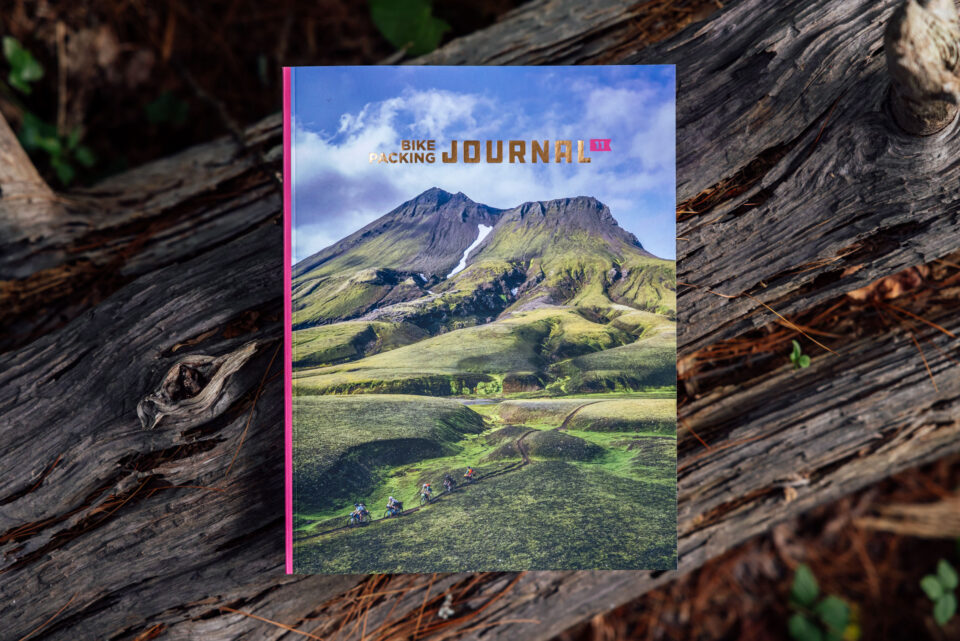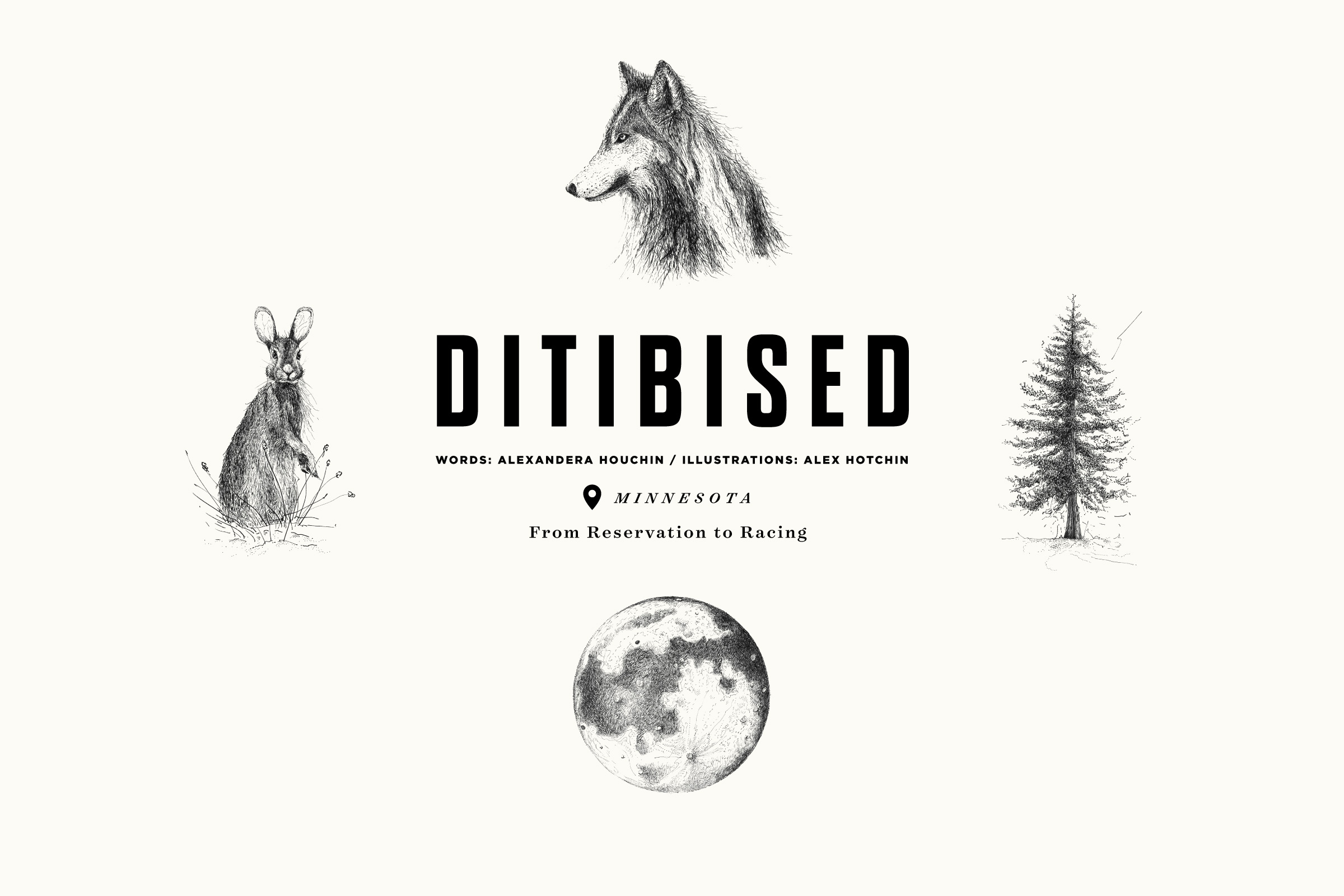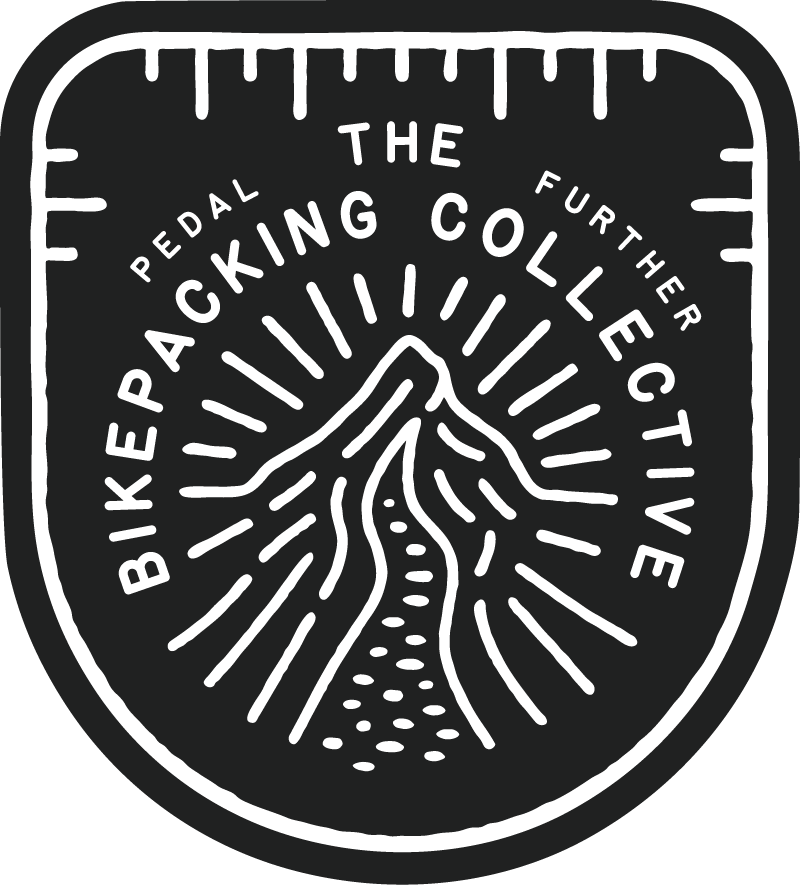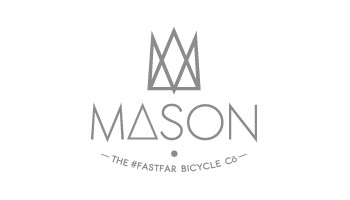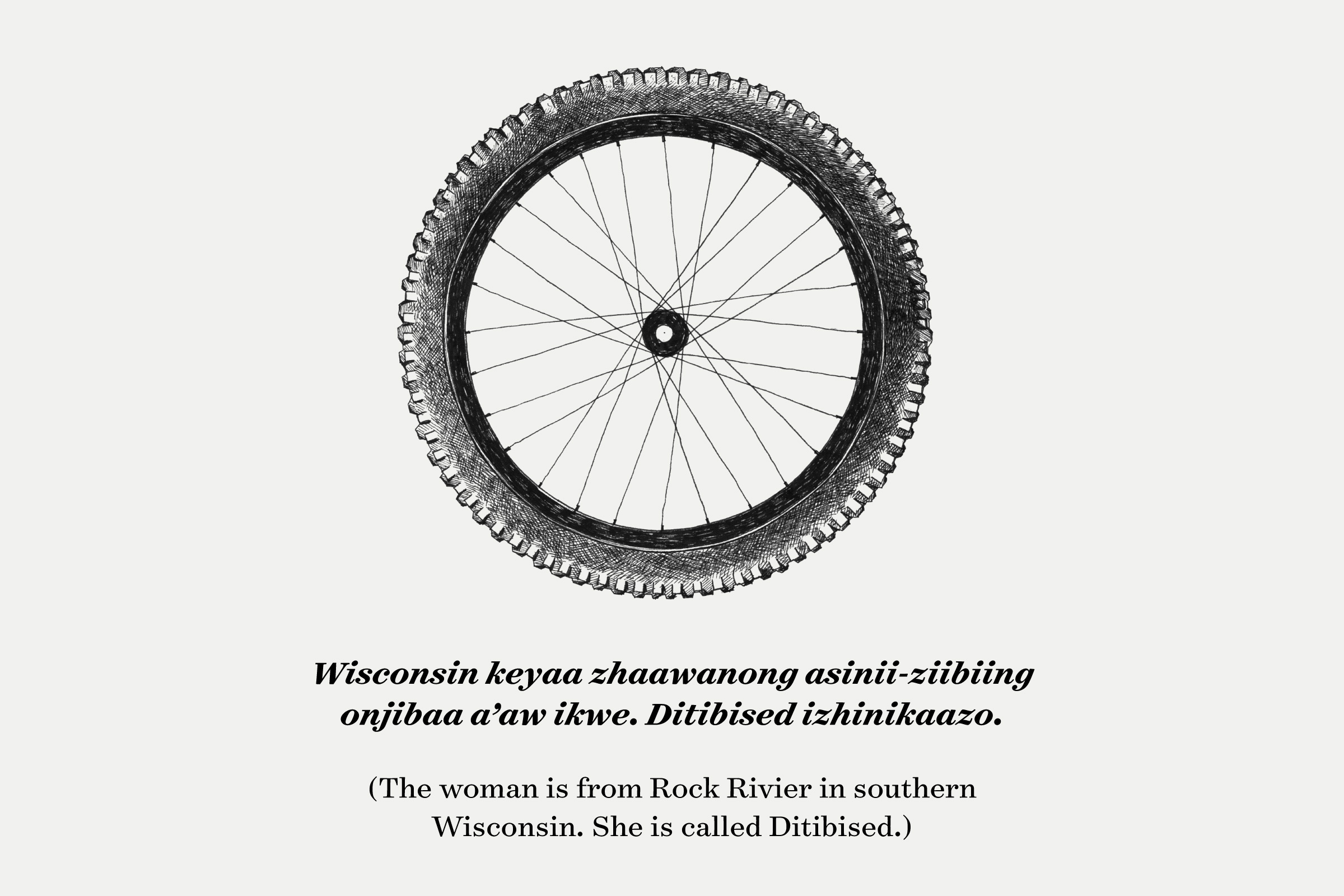
Ojibwe is all around us. But still, when I say I’m Ojibwe, Anishinaabe, people have no clue what I’m talking about more often than not. Are you making up words? I say this with all sincerity; there’s no finger pointing here. I’ve simply come to give these words a voice, a body, a soul. My identity as an Ojibwe woman has reshaped my perception of and dictates how I move through this world.
The word ziibi might be familiar to some, but maybe not upon first whisper. Try it. Shove the sound through your teeth: ziibi, ziibi… sippi. The word Mississippi comes from the Ojibwe, misi-ziibi, or gichi-zibii (both phonetically read close to Mississippi), the “big river,” referring to the arterial flow of water whose headwaters lie in the great state of Minnesota and course south to the Gulf of Mexico. Ziibi is the Ojibwe word for river; gichi means big. My first bike tour followed the Great River Road, tracing that artery north to the ancestral homelands of my relatives in northern Minnesota. The honesty and pure simplicity of a river will forever humble me. The ziibi has always shown me the way home.
Ditibised calls Minnesota home. She lives on the shores of the St. Louis River, Nahgahchiwanong (where the water ends). Ask her sometime why she thinks it’s named that. Not many miles from the shore of Lake Superior, she lives in a small community at the edge of her band’s reservation. They call it the “compound.” The windows of her neighbors’ homes are covered with blankets. Some blankets are brightly colored, some sun-faded, but they are all thick. Are they keeping things out or keeping things in? Either way, no one uses curtains around here. Ditibised has blankets covering her bedroom windows.
She’s Fond du Lac Ojibwe—one of six bands of the Minnesota Chippewa Tribe—and has been hungry for adventure all her life. She grew up in a trailer park far from the reservation and didn’t develop a penchant for travel until she found the bicycle in her 20s. It would take her nearly a quarter century to find a route that matched her strengths and forced her to focus on her weaknesses. After enough searching, she found the Great Divide Mountain Bike Route. In 2015, she opted to tour it northbound with a friend over 45 blue-sky days. Until then, she’d never finished anything she’d started. In fact, on her first bike tour to the reservation, she called it quits in Moose Lake, and her mother came to pick her and her fixed gear bicycle up just twenty-six miles from her finish line. Twenty-six measly miles and she’d given up.
Three years later, she raced the 2,745-mile Tour Divide as her first ultra-long-distance bike race and finished as the first female in an unimpressive 23 days. In 2019, she bested her time by five days aboard a bicycle with but one gear. How could Ditibised have erased five days from her first race finish?
She’d always been one for cycles—the bicycle; the seasons; the wash, rinse, repeat of everyday life.
Life, love, and commitment bogged her down through the frigid north country winter, but the list of goals she taped to her bedroom wall whispered to her every night before she found sleep. She may not have known much about racing, but she knew that a win began long before she showed up at the starting line, and, more importantly, that a win didn’t even necessarily mean crossing the finish line first.
Ditibised. “She rolls,” “she goes around.” It’s a name inspired by the Ojibwemowin word for wheel, ditibise. Ojibwemowin, like many indigenous languages, is based on the use of verbs. It’s different than the noun-based language, Zhaaganaashiimowin (English), through which Ditisibed has come to perceive and interpret this world. Language fully shapes our perception. She’s new to Ojibwemowin, but in learning the word for wheel in her indigenous language, her perception was transformed. She no longer was the noun. She became the verb, the change she wants to see in the world, for ditibise means it goes around. It’s a thing, described not as an object, but nawmed for what it does. Thus, the name Ditibised fit the young woman well, for she was one to roll with the punches, to take it as it comes. She’d always been one for cycles—the bicycle; the seasons; the wash, rinse, repeat of everyday life.
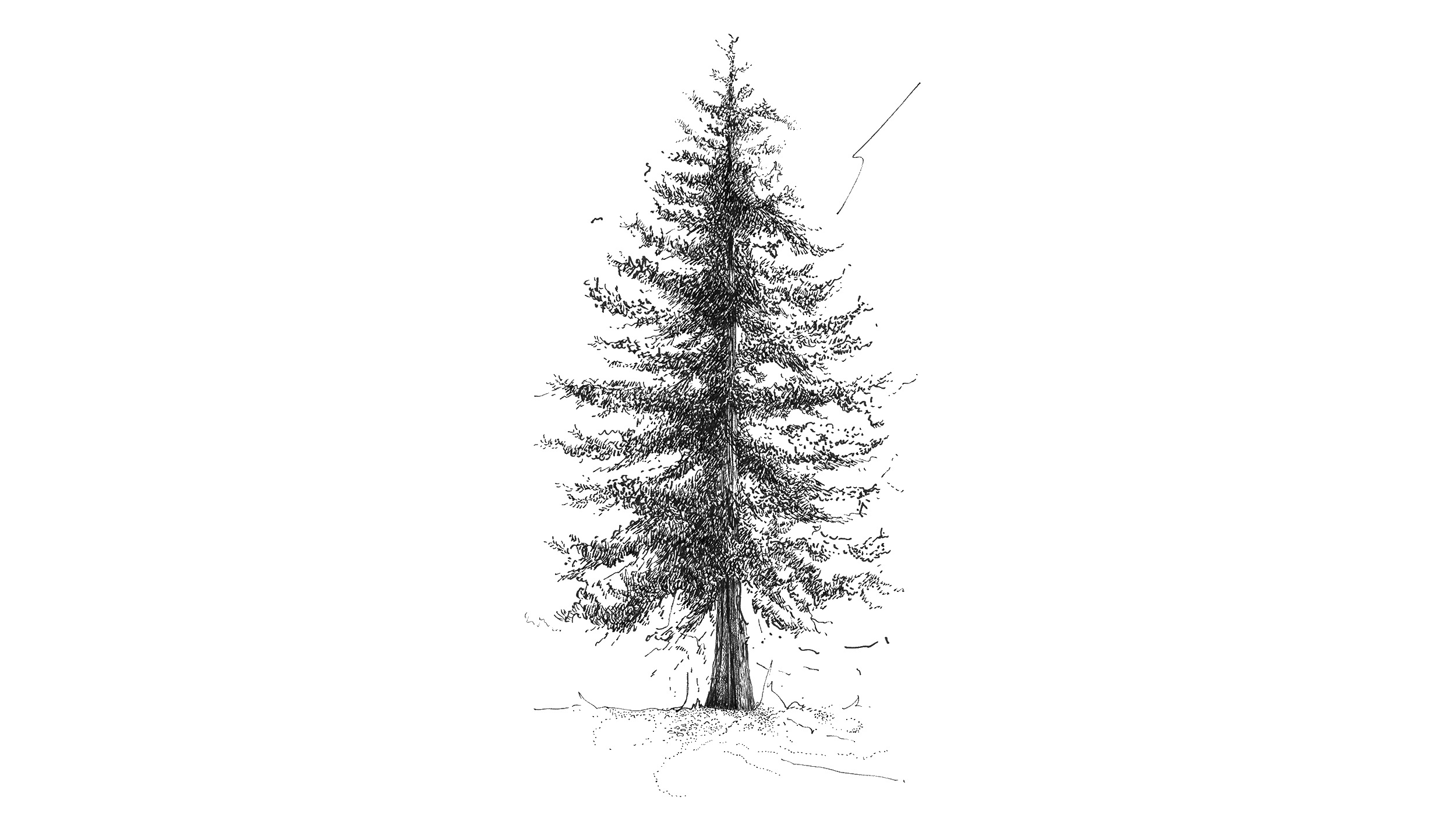
Dagwaagin // Autumn
Dagwaagin is a time of preparation. The Smoke-n-Fire 420 was her final bikepacking race of the summer. She almost pulled her first top 10 finish, but her charging set up failed and she watched the racers pass her while she stopped to charge her Garmin. Eleventh place was good enough…this time. This competitive drive within her was new, unfamiliar even. She headed back to Minnesota ready to start school and even more ready to start her first season of training. They said she needed to rest, but rest drove her to madness.
She visited Green Bay to spend one last weekend near that boy. She found herself at the Fat Bike Tour of Green Bay. She met George, a man willing to support her alongside her bike sponsor. He owns Broken Spoke Bike Studio, the shop he built from the ground up and her home away from home. He said he’d been blessed and wanted to keep paying it forward. She told him she was going to train for the first time ever, and he raised his cup of black coffee to her mug of cream with some coffee. “You’ll be great.”
She wasn’t sure what training looked like, but she knew she’d figure it out herself. She was adamant that if she could do this, anyone could do this. No trainers, just listening to her body and being accountable only to herself. While training for the marathon she ran the prior spring, she found the process of training was more rewarding than the marathon itself. The greatest victory was simply knowing she put in the time and energy before she showed up to the starting line. Just six months before, she couldn’t even run three miles. It was commitment to the event, day after day, with no affirmations reminding her, hey you’re doing a good job. She learned to train without external validation, which was the greatest lesson she took away from the process. She radiated with pride because she was really doing this to find herself.
In Minnesota, the leaves begin to change color in waatebagaa-giizis (September). Giizis is the word for the moon and the sun. Waatebagaa describes the leaves, bright and changing color. It is a proper name for the month, for we can see the change happen. A name given not as a noun, but as an observation. To be. The moon, grandmother, has her cycle, and with each new moon, there’s a name that describes what we see, what we do, how we go about life.
Ditibised thought about this a lot. It’s a shame about the calendar we use now. It’s like white walls in a house, she thought. White. Reflection of all the color in the world, white is the absence of color, denial of what we see. Color is what makes life beautiful. The name September is a reminder of individualism. July was named for Caesar. It’s detached from our surroundings; what happened to place? The leaves change color in the north country in September, but not in the south country. For the Diné (Navajo), the word for September, Bini’ant’aatsoh, describes how the crops ripen. Language reveals how we flutter through the world. We’ve only got our words.
The Gregorian calendar denies the cycle, traveling in a straight line and starting over at January. When we can start over, we often fail to realize the consequences of our actions because when starting fresh, all is forgiven. Time doesn’t only move forward. It’s the cycle that keeps us accountable. What goes around, comes back around. Time is cyclical.
The waatebagaa, the brightly colored leaves, spend one moon on the trees. The next moon pulls those leaves to the ground, then comes the frost. The trees will be barren, and the plants and animals will begin their hibernation; it is back to the cycle. We’re supposed to be bulking up. After a season of feast comes a season of famine. Ditibised used this time to dream.
The most important muscle to train for bikepack racing is the brain. Imagining things seems hard. If we can’t do what we imagine, what’s the point of imagination anyway? When she closed her eyes, she saw finish lines. Some of her competitors saw numbers, some saw faces, some saw affirmation and fame. Ditibised, though, saw only finish lines.
Dagwaagin is short in the north country. In no time, the frigid evenings give way to frigid days. There’s a paper factory in her town, and the air has a particular scent. The way it blends with the smell of autumn smells like home. It’s a smell that tells you to prepare for what is about to come. Making it out the other side of winter is an unparalleled endurance event.
To train through the winter, she decided to pair gym sessions with every local bike race she could fit into her hectic schedule. She’d never been able to afford race fees before. She started her training season with the Marji Gesick, a 100-mile bike race in Ishpeming, (based off the Ojibwe ishpiming, meaning above, heaven, high, up) Michigan. Already, she felt connected to this race. After all, her understanding of Ojibwemowin revealed to her the race was in heaven. What better place to start a race. It was a day to test her limits, a new skill she could bring to ultras. Except, it was harder than she imagined. Seventeen hours to ride a century, her all-time low. It was the first time she climbed 12,000 feet in a meager hundred miles of singletrack. I’m no good at climbing, she thought.
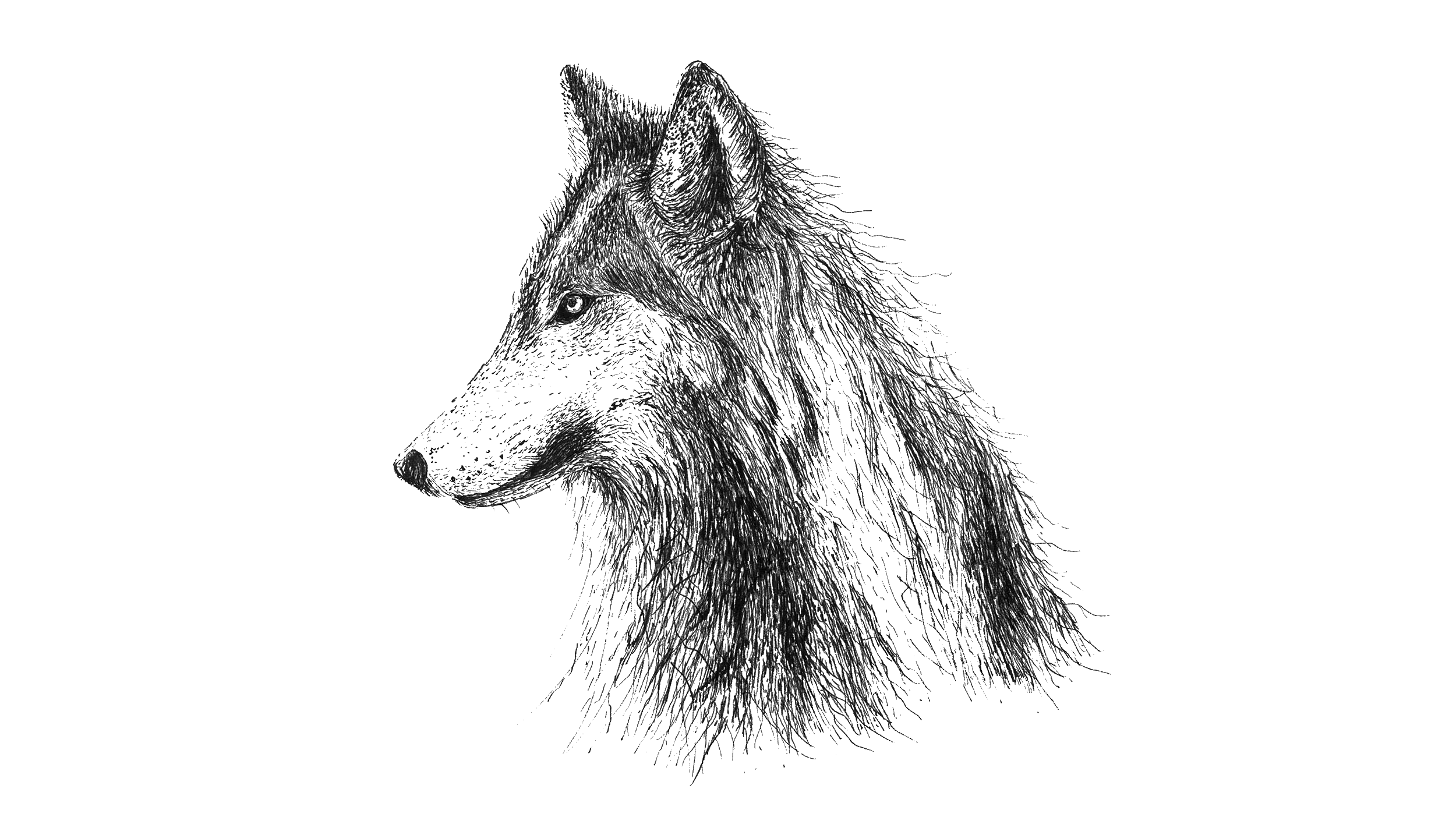
Biboon // Winter
She’d used the excuse, I suck at climbing, for years and compensated by saying, at least I descend fast. She decided she would Everest that training season. Everesting means climbing and descending the same road until you reach the height of Mount Everest: 29,029 feet. Winter in the northland was no place to do that, though. She had to wait until the end of the semester when she could travel somewhere warmer.
She managed to create a structured schedule and trained regularly. Between long runs outside and interval training on the treadmill, she felt like the routine would stick. As manidoo-giizisoons (December) approached, a bout of homelessness threw her off her training regimen. Living out of her Honda Element in biboon was harder than she expected. She could either get an apartment or live out of her car so she could race bikes all summer; she didn’t have enough money to do both. Whatever it takes, and she meant it. She chose the latter.
She showered in the locker rooms on campus and pretended she was just extra motivated during those late nights in Cina Hall. She was just passing the time. She barely made it to the end of the semester and bought a ticket to the Sonoran Desert. She knew her destination.
She was going to find the first climb she fell in love with and ride up and down its switchbacks 27 times in a row. Redington Road—that section of the Arizona Trail you ascend before carrying on up to Bellota Trail and over the Molino hike-a-bike. It was the first road she climbed on a bikepacking mission to the desert with her newfound friends Blue Dog and Inner Passage. Those men got to see what falling in love was like for her. They climbed ahead of her; she gave everything to keep up with them, and in return, they took her into the heart of the mountains to find a waterfall and a bottle of whiskey hiding in a tree.
It was the hardest bike ride she’d ever been on, and that feeling of weakness never left her bones. She knew she was stronger now and had to go back. She pulled off her Everest—30,270 feet of elevation gain in 156.7 miles. While she was on the bike, someone stole her camp gear, warm weather clothing, and food. But she learned every secret that the switchbacks on Redington Road held.
She returned to the northland without the sleeping gear she depended on for winter survival in the Element. She picked up a cleaning gig, and when the people who hired her found out she was living out of her car, they invited her to live with them. She tried it. It didn’t work out. There’s no room for a 29-year-old woman in a home built by another woman.
She found herself back in the compound. There’s security in home. She forgot her skis when she moved out, and they’d been stolen. So, she ran. It was free to run. She ran in the sleet. She ran through inches of snow. Her feet were always soaked and surrounded by ice, but they never got cold. She was using them, and using them made her feel alive. She ran on the most inclement of days; six, seven, eight miles. Ningodwaaswi, niizhwaaswi, nishwaaswi, she counted. It was music, a melody to keep her going. Her ancestors lived here biboon after biboon. If they could do it then, she could do it now. She owed it to the generations yet to come. If she could do it now, they’ll be able to do it then.
There were some bike trails near the compound, but there are many more snowmobile trails, and team CHUMBA sent her a fat bike. She rode it, but something about running felt like better training for ultra season, so she saved the bike for races. Biboon is for the brain, she thought. Save the fat bike for another season.
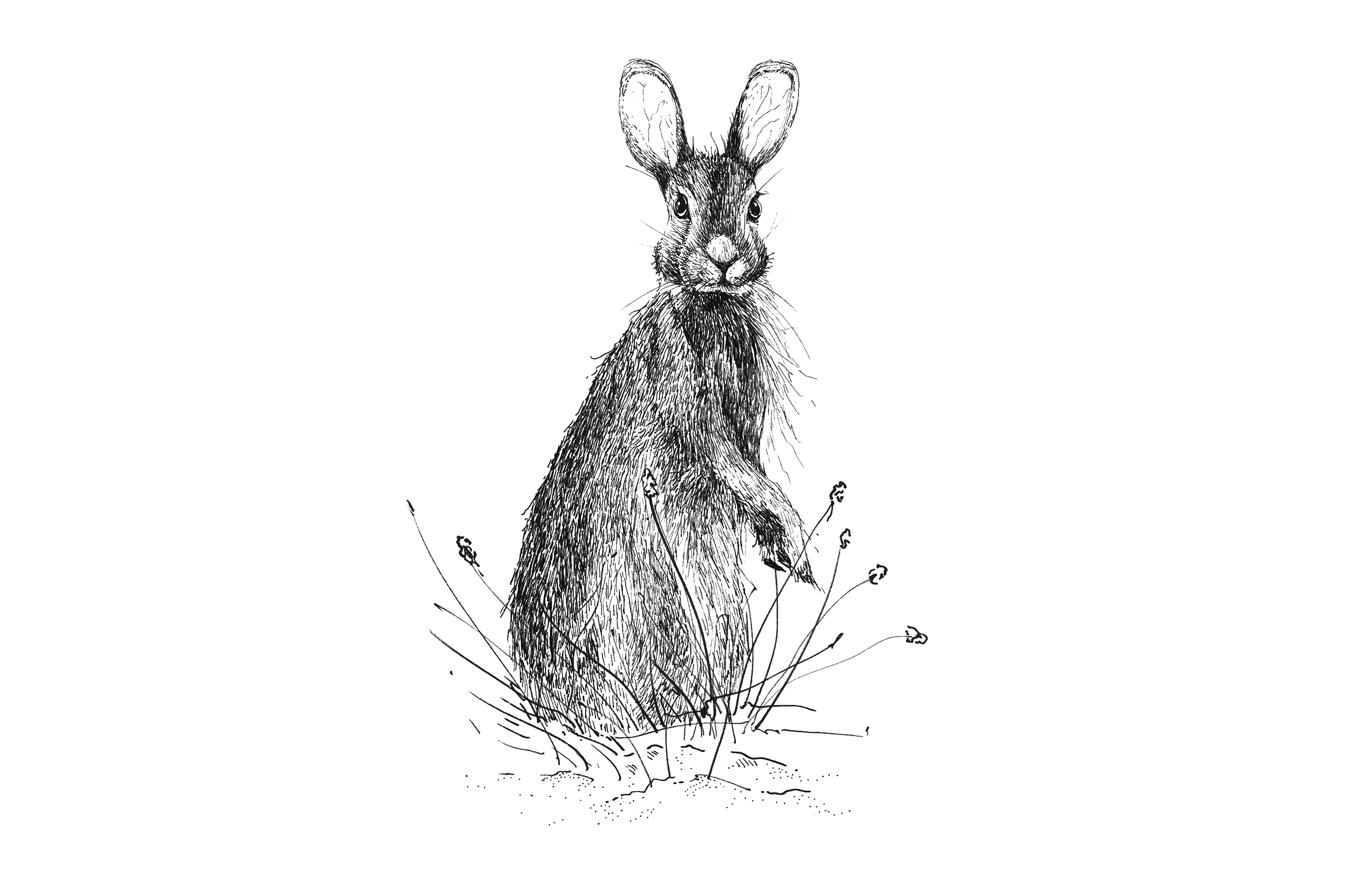
Ziigwan // Spring
Biboon fades slowly as the snow turns to water again. Old Man Winter loses his grasp on the Earth, and ziigwan falls into place. She knows spring is coming when they tap the maple trees and our brother Aandeg, crow, comes home. It’s our time to work with our bodies again. Winter is for the mind. The animals hibernate; we cover our bodies with thick layers of fat that shield us from the cold. We spent all year preparing for biboon, and now we are on the other side of it. Ziigwan is a happy time. It’s time to celebrate—time to show off what you learned.
Ditibised reflected on her weak spots during the Tour Divide the year before. She wasn’t good at those long gravel climbs. She found herself bored with the simplicity of the forward momentum. So, she decided to sign up for every gravel race within a four-hour drive.
The first race of ziigwan was Ragnarok, a 107-mile cruise through the Mississippi River Valley outside of Red Wing, Minnesota. She was shocked when she climbed nearly 7,000 feet to the finish line 10 hours after beginning the race. Showing up at the starting line on her fat bike with 4.8-inch tires, and she looked at everyone else’s bikes and realized she had no chance of towing in a win. She decided to make the most of it.
She dug around in her Element and found her 20-pound kettlebell. She used to ride with it in her frame bag when she worked at the grocery store in Tucson. She wanted to keep the fitness she found on her bike tour. She hoped to race the 300-mile Arizona Trail Race at the end of the month and needed all the training she could get. So, aboard her fat bike, kettlebell loaded, she set out to crush a century. She ended up crushed in return.
She thought about the race’s name, Ragnarok. What’s in a name? Race names mean a lot to Ditibised. There are races with boring titles, racist titles, and creative titles. Ragnarok is a series of events that led to the destruction of some of the greatest Norse gods, and ultimately to a world submerged in water. It’s an unsuspecting race in Minnesota, and it destroyed Ditibised. The race’s profound title makes her proud she calls Minnesota home. She learned not every race needs to end in a win. Rather, some races should be used to lose. It keeps us humble and shares the wealth.
She learned not every race needs to end in a win. Rather, some races should be used to lose. It keeps us humble and shares the wealth.
A few weeks later, she set out to race the 300-mile version of the Arizona Trail, which resulted in her first DNF. She’d been tackling too much on the academic front and didn’t have the capacity to properly gauge the logistical side of things. She had purchased her flight home in advance of the race, but the person who was going to give her a ride from the finish line to the airport had quit racing, and she was running out of time. She climbed Redington Road again and camped atop the rock with Inner Passage. Defeat taught her the ultimate lesson: time doesn’t matter in ultras. She would never purchase a flight home in advance again. Finish, then fly. That’s how it works.
She spent the rest of spring tackling local races on her fat bike, kettlebell in tow, and victory on the back burner. She was saving her wins for later. She raced the Bear 100 and the Alexander 390, a nearly 400-mile push that included more than 26,000 feet of climbing through the Mississippi River Valley. Just two weeks later, she left from Iowa to pedal some 600 miles to the beginning of her summer race adventures.

Niibin // Summer
This was the season that counted for Ditibised. Niibin was why she ran 13 miles in 16-degree weather. It was why she carried the kettlebell and rode the fat bike everywhere. She started in the middle of nowhere, Iowa, with a single speed and five days to reach Emporia, Kansas. The route she crafted was a 478-mile back road traverse to the starting line of the DKXL, a 350-mile gravel race through the Flint Hills of Kansas.
She was focused on those big gravel rides, wanting to use what she learned in them to excel in the Tour Divide. She planned on using her ride to the DKXL as a mental exercise to transition from ziigwan to niibin and to find her legs. The rain poured continuously, making the roads impassable with mud and flooding. She ended up adding a 150-mile reroute to avoid incredibly inclement road conditions. What was supposed to be a relaxing ride to the race ended up becoming an endurance event of its own. There were countless miles with torrential winds, sheets of rain, two bridge closures, and more highway shoulder riding than she felt comfortable with. The Missouri River was higher than she’d ever seen it.
She rode multiple days of more than 120 miles on her single speed. She was offered rides, but his voice echoed in her head. You can win, if you want to. He was right. She needed to be strong when no one else was watching. She needed to be strong for herself. He was right about everything, and that’s what scared her. She was falling in love with him but had said goodbye. She spent the next two months trying to let him slip away. He hadn’t picked her, and she needed to be chosen. She wasn’t sure, anyway. What does a relationship mean for an ultra racer? Ultra racing is ultimately selfish. Ultimate selfishness doesn’t breed a happy partnership. It’s self-consuming through the seasons. It’s time training, time travelling, time away. Time. She’d been alone for nearly six years now, and it terrified her to find another half. She was broken in ways she denied, and he was a mirror for that without even trying to be.
She arrived in time to start the DKXL and snapped her pedal off in the middle of the race. She wanted to quit. Finally, a mechanical allowed her an avenue for submission. But all she could think about was the Arizona Trail Race. DNF. Two races where she found the starting line and neglected to find the finish line. Disappointment. She thought back to her skis being stolen. Running is free. She could walk; she could run along the course while begging for a pedal. A few hours of pushing, a few hours of coasting. She gave up hope.
“Come get me, I can’t finish.” she texted her support.
They said they were at least two hours away. She collapsed, crying. She was not as strong as she thought. She decided to keep walking. Remember? Forward is forward. She kicked up dirt and kept asking. Pedal, please? Finally, an Egg Beater. She tied her belt to the broken platform pedal and strapped it to the new clipless pedal she bolted on her crank.
“Found pedal. Gonna finish.”
All it takes is one yes.
The cycle of the seasons prepared Ditibised for the Tour Divide. It reminded her that setting her sights on a time would set her up for failure. She wasn’t poised to win, but setting her sights on finishing proved to be enough to carry the first womb across the finish line. It wasn’t the actual race she was proud of, though, it was the collection of moments leading up to it.
It was enduring through the rolling seasons of self doubt. It was the worry. Am I doing enough? It was the feeling that she wasn’t good at anything through the dagwaagin, biboon, and ziigwan. How would she perform throughout the niibin? The doing when nobody else was watching. She was proud of that.
She reminded herself that despite all the odds stacked against her, she had the mind of a believer. She wasn’t that trailer park; she wasn’t the couch potato; she wasn’t the circumstances in which she was enveloped. She learned she won’t score every shot or win every race, but she had to take the shot and show up to the race to even have a chance for victory.
What did Ditibised learn this year? She learned to translate these little lessons to her effort in the game of life. She competes in athletics to build a richer life. Aren’t we all trying to build happy, fulfilling lives? She learned that winning a race is not important, it’s winning the series that matters. How do you win the series? You learn when it’s okay to lose, when it’s appropriate to follow, and when it’s time for you to lead.
Know that there is a difference between winning the tournament and winning the game. Think about what it takes to win a game. To win a game, you inject the star into the playing field, you put your highest athletic performance on display. Ahh, but to win the championship, you put forth your best such that he or she can invest in others. Though bikepacking racing is an individual event, all who race are members of a community, her community, Ditibised’s Bike Tribe. To win the championship, the community must build each other up so that we are prepared to compete against the best in any conditions Mother Nature throws our way. This investment takes time.
A great athlete and a great person don’t only radiate exceptional skills. They also seek to expand their skills at all times, even in the smallest of their efforts. They take their time to succeed and invest in their community, because who you surround yourself with is who you become.
She races her bike not to win, but to find honesty within herself. To take five days off her Tour Divide time, Ditibised tried her hardest and never cried foul. She found the humility within herself to set the bar low so she could be better today than she was the day before. Wake up, find forward, repeat.



